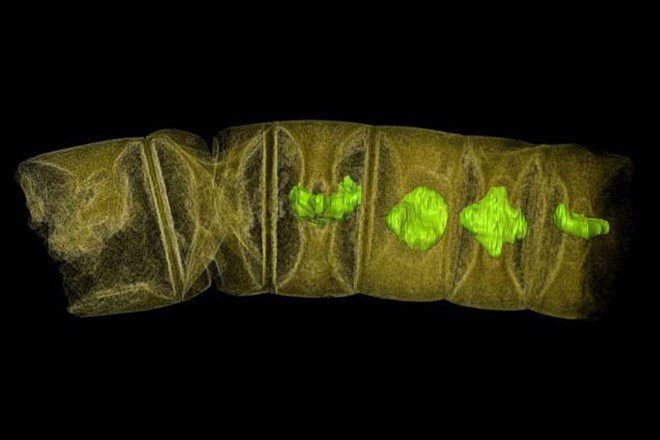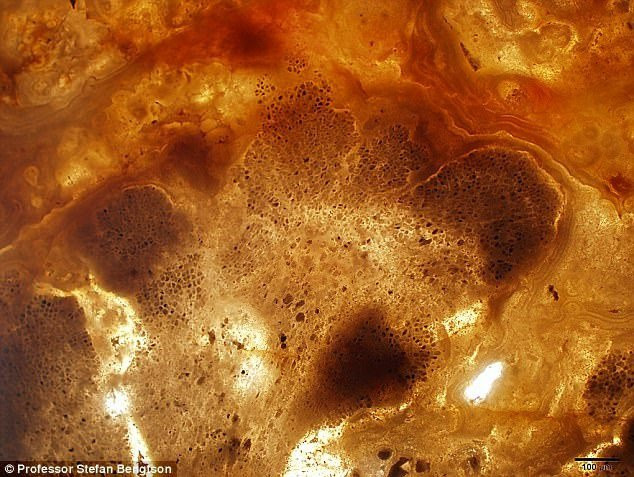1.6 billion year old fossil shakes theory of life
Two red algae-like fossils are believed to be the oldest plant fossils ever found on Earth, shaking up theories about the history of life on the blue planet.
According to research published on March 14 in the journal PLOS Biology, these fossils were found in sedimentary rocks in Chitrakoot, central India.
One fossil is slender, the other is thicker and more complex. They date back 1.6 billion years and are still intact, allowing scientists to study the complex structure of primitive algae.
In the cells of these fossils, scientists found chloroplasts, components that play an important role in the photosynthesis process of plants.
"The fossil's DNA is missing, but based on its morphology and structure, it can be assumed that it is a red algae," said Stefan Bengtson, professor of paleozoology at the Swedish Museum of Natural History.
 |
| X-ray image of a fossil that resembles red algae. (Photo: Reuters). |
Red algae are primitive plants that exist today and thrive in marine environments (found on coral reefs) or in freshwater environments. The red algae called Nori is a popular sushi ingredient.
"We could have eaten sushi 1.6 billion years ago," Reuters quoted geobiologist Therese Sallstedt at the Swedish Museum of Natural History as saying.
New evidence suggests that multicellular organisms may have begun evolving 400 million years earlier than previously thought. The oldest fossils of red algae previously found date back only 1.2 billion years.
Professor Bengtson said the discovery of these fossils could force experts to reconsider their theories about the history of life on Earth.
"Perhaps living entities visible to the naked eye (made up of multicellular organisms) appeared on Earth earlier than we thought," said Professor Bengtson.
 |
| Red algae-like fossils were found in sedimentary rocks in India. (Photo: Daily Mail). |
The earliest traces of life on Earth are thought to have appeared about 3.5 billion years ago but existed as single-celled organisms.
About 600 million years later, new protists appeared. The appearance of protists had a huge influence on the evolution of complex organisms including plants and animals.
According to Khoahoc.tv
| RELATED NEWS |
|---|

